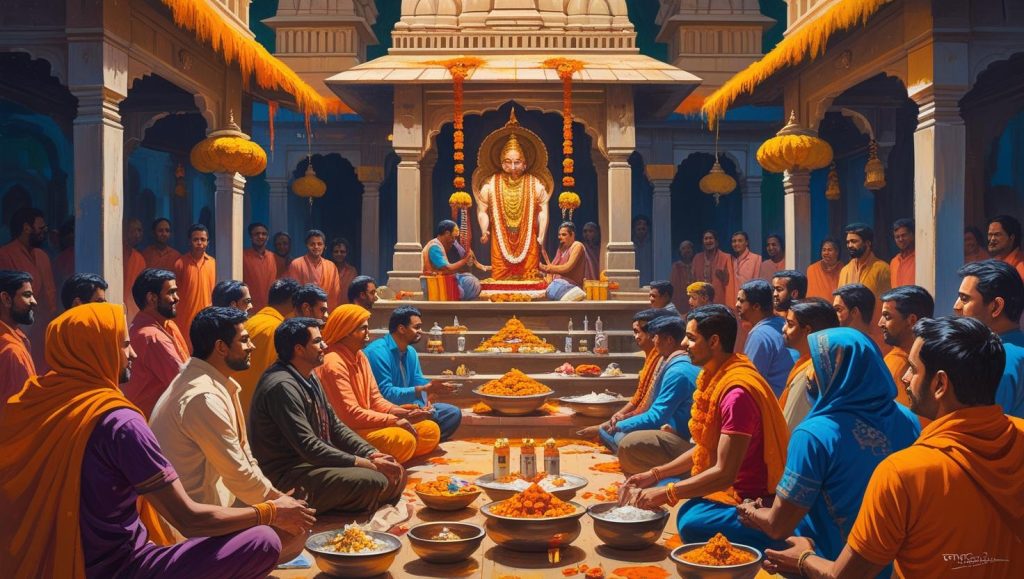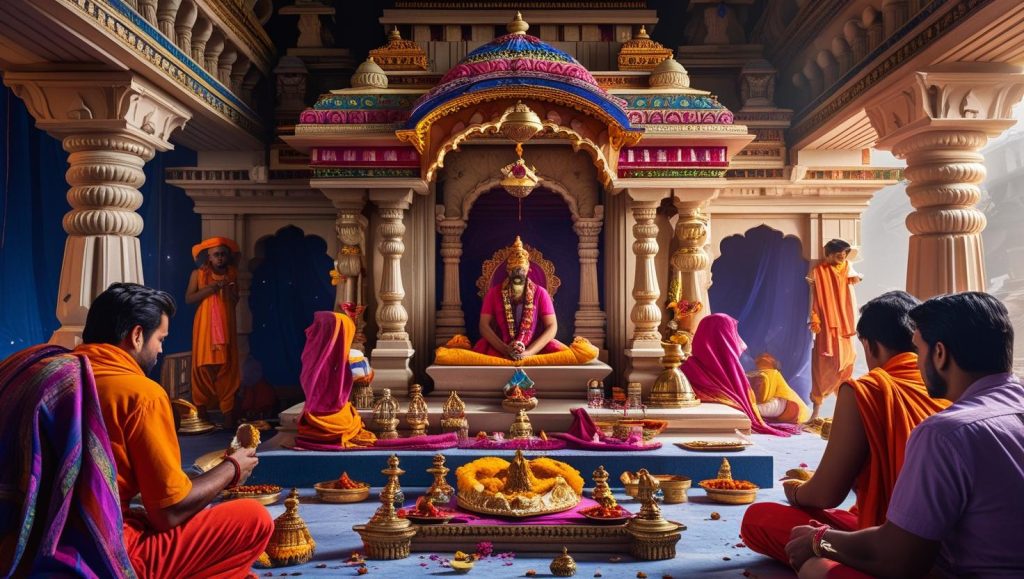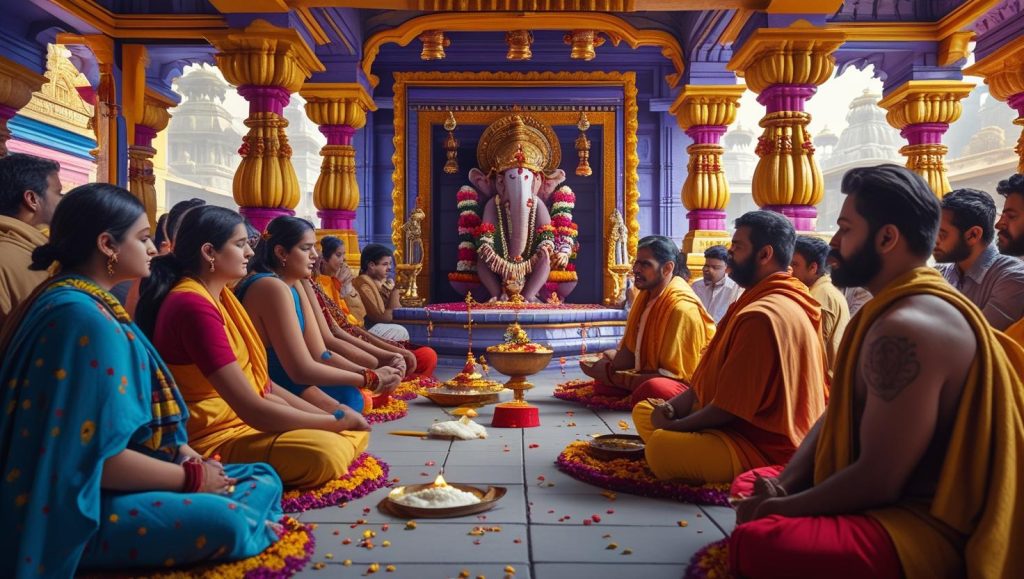Dedicated to Bhagwan Rishabhdev, the first Tirthankar of Jainism, the temple reflects centuries of devotion, spirituality, and cultural richness.
In this blog, we explore the unique rituals and traditions that make this holy site so special.

1. The Morning Mangal Aarti
Every day begins with the soul-stirring Mangal Aarti at dawn. The temple resonates with the sound of bells, conch shells, and devotional chants as the idol of Bhagwan Rishabhdev is adorned with fresh flowers, sandalwood paste, and jewels. Devotees believe that witnessing this aarti brings peace and divine blessings for the day ahead.
2. The Iconic Kesariya Chandan Ritual
The temple is famously called Kesariya Ji due to the unique tradition of offering saffron mixed with sandalwood paste to the idol. Devotees anoint the idol’s feet with this sacred mixture, symbolizing purity, devotion, and spiritual surrender. This paste is then taken back as prasada for blessings.

3. Feeding the Holy Pigeons
One of the most heartwarming traditions is the feeding of pigeons that flock to the temple premises. Devotees believe these pigeons are carriers of good luck and divine blessings, and offering them grains is a way of showing compassion—reflecting the principle of Ahimsa taught by Bhagwan Rishabhdev.
4. The 52 Kalyanak Celebrations
Special ceremonies are held to honor the 52 Kalyanaks (auspicious events) in the life of Bhagwan Rishabhdev. Each event is celebrated with grand rituals, recitations of Jain scriptures, and processions filled with devotion and joy.
5. Palkhi Procession
On special occasions and festivals, the idol of Rishabhdev is taken out in a beautifully decorated palkhi (palanquin) around the temple complex. Accompanied by music, chants, and the sound of drums, this ritual allows devotees to feel a deeper connection with the Lord.
6. The Chhappan Bhog Offering
During certain festivals, a grand feast known as Chhappan Bhog—comprising 56 varieties of vegetarian delicacies—is offered to the deity. This offering symbolizes abundance, gratitude, and the joy of devotion.
7. Deep Daan Ceremony
Lighting oil lamps or deep daan in the temple premises is a symbolic act of dispelling ignorance and inviting divine wisdom. The sight of hundreds of flickering lamps creates a serene and meditative atmosphere.
8. Akhand Jyot (Eternal Flame)
An eternal flame burns within the temple, signifying the everlasting presence of truth and spiritual knowledge. Many devotees offer ghee or oil to this flame as part of their prayer for inner enlightenment.
Conclusion
The unique rituals and traditions of the Rishabhdev Temple are not just religious acts—they are a living heritage that binds the community in faith, love, and compassion. Each practice carries a deep spiritual meaning, guiding devotees towards a life of purity, non-violence, and truth.
A visit to this sacred temple is not only a pilgrimage but a journey into the heart of Jain devotion and tradition.


